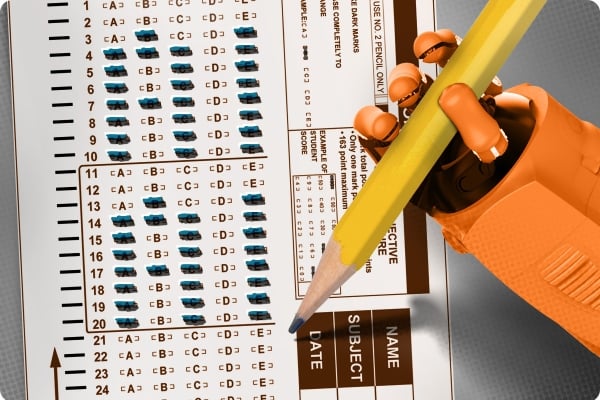AI technology has been making significant strides in various fields, revolutionizing the way tasks are performed and improving efficiency. However, with these advancements comes the potential for misuse. One such concern is the use of AI to cheat on multiple-choice exams.
Multiple-choice exams are a common assessment method used in schools and universities to test students’ knowledge and understanding of a subject. While traditionally, cheating on multiple-choice exams involved tactics such as looking at someone else’s answers or sneaking in cheat sheets, AI technology has introduced new and more sophisticated methods of cheating.
One way AI can be used to cheat on multiple-choice exams is by leveraging its capabilities in natural language processing to analyze and interpret questions. By feeding the exam questions into an AI system, it can quickly generate accurate answers based on its vast database of information. This allows students to obtain correct answers without having to rely on their own knowledge and understanding of the subject.
Another way AI can be used to cheat on multiple-choice exams is through the use of chatbots. Chatbots are AI-powered programs that can hold conversations with humans. In the context of exams, students can use chatbots to receive real-time assistance and guidance on the exam questions. These chatbots can be programmed to provide students with the correct answers or relevant information, giving them an unfair advantage.
Additionally, AI can also be used to create fake identities and accounts to impersonate students and take exams on their behalf. By using facial recognition technology and other authentication methods, AI can easily bypass security measures put in place to prevent cheating.
The use of AI to cheat on multiple-choice exams raises ethical concerns and undermines the integrity of the education system. Cheating not only gives students an unfair advantage over their peers but also devalues the efforts of those who have studied and worked hard to earn their grades honestly.
To combat cheating with AI, educational institutions need to implement strict measures such as proctoring tools, plagiarism detection software, and randomized question banks to discourage and detect cheating attempts. Students should also be educated on the importance of academic integrity and the consequences of cheating.
In conclusion, while AI technology offers numerous benefits and advancements, it also presents challenges and risks, including the potential for cheating on multiple-choice exams. It is important for educators, students, and technology developers to work together to address these issues and uphold the principles of academic integrity.



